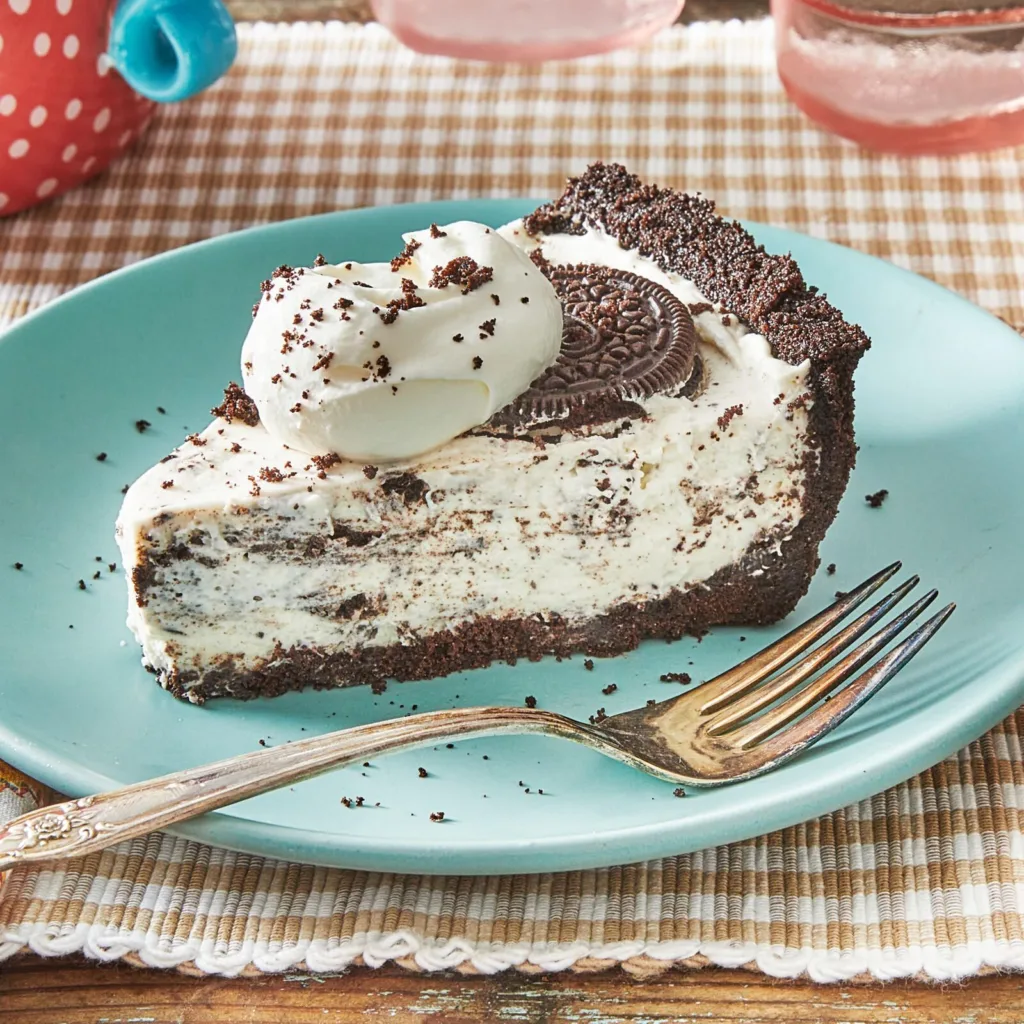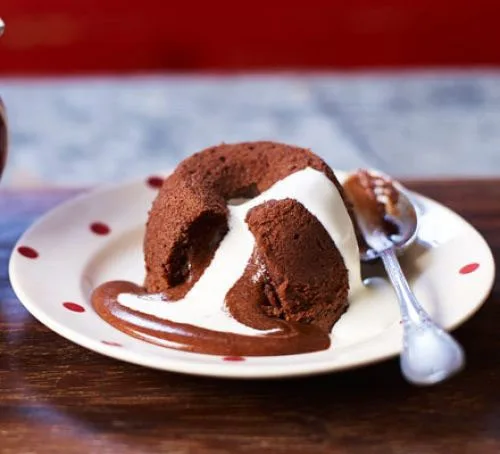We’ve all been there – staring longingly at a decadent chocolate cake or fresh-baked cookie while trying to lose weight. The temptation is real. Desserts seem to call our name, triggering intense cravings that can derail the best intentions for healthy eating. Resisting these sweet temptations can feel like an impossible feat when a sugar fix is within reach.
But don’t despair – with the right strategies, you can still enjoy occasional desserts without sabotaging your weight loss goals. This blog post explores practical tips for overcoming the sweet temptation in a way that satisfies your taste buds while supporting your health and fitness aspirations.

The Sweet Dilemma
For many people trying to lose weight, dessert is a dilemma. We want to satisfy our cravings for something sweet after a meal, but wonder if a sugary treat will undo our hard work for healthy eating and an improving waistline. It’s easy to feel deprived and tempted to overindulge when sweets are around, especially calorie-laden baked goods like cakes, pies and cookies.
This inner battle between desire and discipline can lead to extremes – either avoiding desserts entirely or binging on high-calorie options. But neither response is sustainable or healthy long-term. Deprivation often backfires, while overindulgence adds pounds. Is it possible to strike a healthy balance? Can we cautiously incorporate desserts without derailing weight loss? This blog post aims to provide solutions so you can mindfully enjoy sweet treats as part of a successful weight loss plan.
Understanding Dessert Temptation
To master dessert consumption, it helps to understand what drives the temptation. For many people, dessert cravings are about more than just tasting something sweet. Emotional eating can be a factor, where treats provide a quick mood boost or stress relief. Desserts may also be tied to fond memories and rewards, like celebrating with birthday cake. There is also the effect of habit – if you’re accustomed to capping off meals with something sugary, it’s hard to break that routine.
On a biological level, sugar activates the brain’s reward centers by releasing dopamine and endorphins. This reinforces cravings to repeat that pleasurable experience. For some, daily desserts can feel addictive, making moderation a challenge. Being mindful of these emotional, mental and physical factors is key to overcoming temptation.

Making Informed Choices
Arming yourself with knowledge is essential for balanced dessert enjoyment. Read nutrition labels to understand what’s in your favorite treats. Many contain added sugars, unhealthy fats, excessive calories, and low fiber or protein. But not all desserts are created equal. Some options have fewer calories, less sugar, and more nutrients.
For example, fresh fruit with vanilla yogurt is a lighter choice than a slice of pie. And dark chocolate has antioxidants not found in milk chocolate. Pay attention to serving sizes too. A small portion of your favorite dessert may satisfy your craving with less caloric impact. Becoming an informed consumer helps you make smart selections.
Healthy Dessert Swaps
While fresh-baked cookies or chocolate cake may be your go-to treats, there are many ways to get your sweet fix with healthier alternatives. Get creative in the kitchen with modified recipes. Replace some of the sugar in baked goods with pureed fruit or low-calorie sweeteners. Use avocado or pumpkin puree in brownies for added nutrition without losing the decadent flavor.
Fill up on fiber-rich fruit as dessert instead of empty calorie sweets. Berries, peaches, baked apples and fruit parfaits are delicious options. For chocolate cravings, try cacao nibs or 100% dark chocolate in small servings. You can also blend bananas or avocado with cocoa powder for chocolatey ‘ice cream’. Making smart swaps keeps you on track without depriving your sweet tooth.
Portion Control
When enjoying traditional desserts, portion control is key. Cut back on oversized servings that pack in too many calories. Stick to a modest 1⁄2 cup or small square of cake, pie or cookies to keep portions in check. Dish dessert out before eating so you aren’t tempted to take seconds. Share a dessert with others at the table. Bringing awareness to how much you consume prevents mindless overeating.
Portion control also applies to healthier sweets. While fruit, yogurt and dark chocolate may have more nutritional benefits, they still require moderation. Stick to one or two small servings daily within your calorie needs for weight loss. Balancing sweet satisfaction with sensible portions is achievable.

Mindful Eating
Being more mindful when eating dessert can curb overindulgence. Slow down and savor each bite without distraction. Notice textures, flavors and aromas fully. This heightened awareness brings more satisfaction from smaller amounts. Additionally, avoid using dessert to fill emotional voids; find other outlets for stress relief and comfort.
Keep less tempting sweets at home while avoiding bakeries or dessert shops when cravings strike. Focus dessert consumption around special occasions or carefully planned splurges. Making more conscious choices creates balance and moderation.
Desserts and Weight Loss Success
While limiting empty calorie desserts is important, you can still achieve weight loss success with a small amount of daily sweetness. Consistency with healthy eating and exercise matters most. Don’t let the perfect be the enemy of the good – an occasional treat will not make or break your results. By using the strategies in this post, desserts can be built into an effective weight loss plan without derailing progress.
Tips for Staying on Track
To master dessert consumption while losing weight, stay vigilant with these practical tips:
- Indulge occasionally in small portions, not daily.
- Keep tempting foods out of the house; out of sight, out of mind.
- Fight cravings with healthy sweet snacks like fruit.
- Savor just 2-3 bites of a dessert you love.
- Share desserts with others.
- Drink water before and during a sweet treat.
- Distract yourself after a few bites to end eating.
- Never use desserts as a reward or punishment.
- Be mindful, focused and present when enjoying any sweets.

Conclusion
With the right mindset and balanced approach, desserts can be part of a healthy lifestyle and effective weight loss plan. Arm yourself with knowledge, employ smarter ingredient swaps, watch portions, and stay conscious of your eating habits. An occasional sweet treat then becomes an opportunity to practice self-control and moderation. You can satisfy dessert cravings and reach your goals – it just takes commitment to these lifelong healthy habits.
Key Takeaways
- Occasional dessert enjoyment is possible during weight loss with the proper strategy and mindset. Deprivation is not required.
- Understanding the emotional and biological drivers of dessert cravings enables conscious choices.
- Making simple lower calorie ingredient swaps allows sweet satisfaction.
- Portion control and mindful eating at all times, especially with dessert, is key.
- Consistency with healthy eating and exercise matters most – occasional treats will not sabotage results.
Ready for More?
If you enjoyed these tips and want to learn more, be sure to subscribe to our free newsletter. You’ll get new insights on food, nutrition, health, wellness and weight loss delivered to your inbox. I also invite you to browse other in-depth blog posts covering related topics. Equipped with the right knowledge, you can achieve your health and fitness goals while still enjoying life’s sweet pleasures.
Thank you for reading this post, don't forget to subscribe to our free newsletter
!
